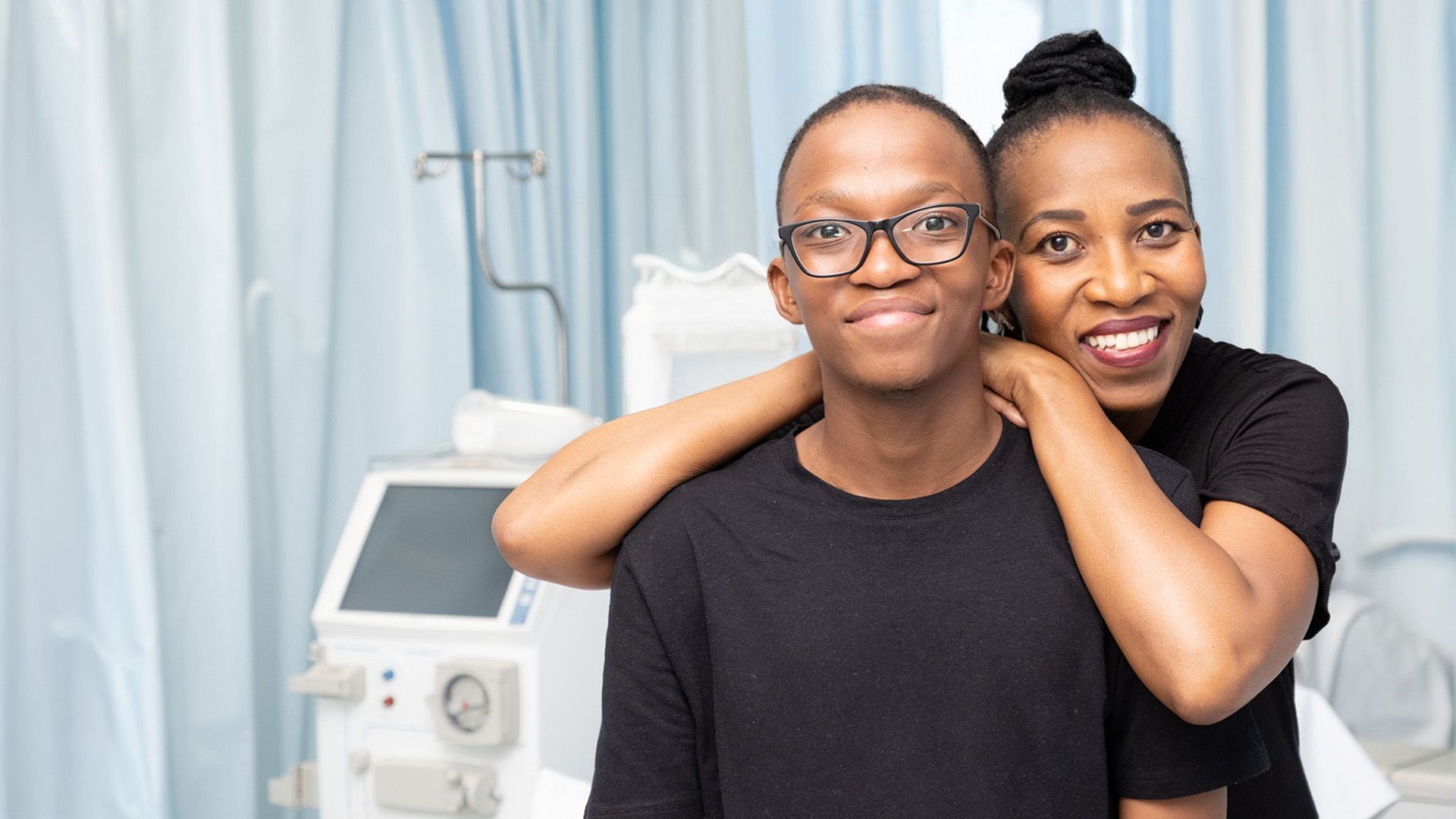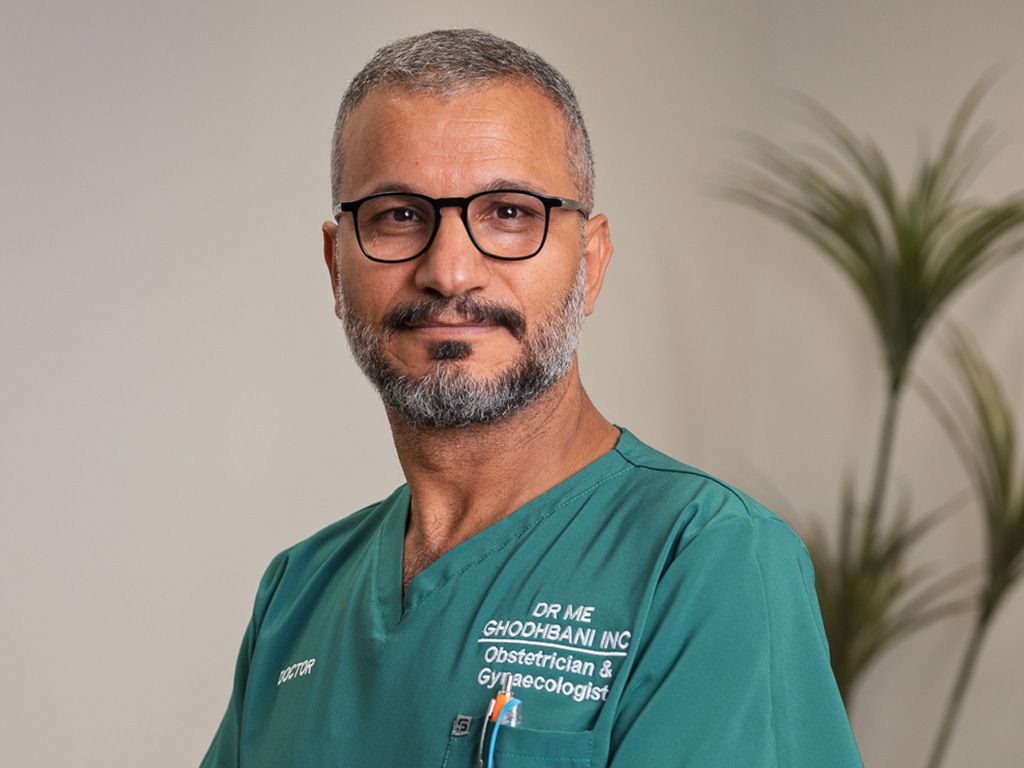DK is thriving with mom’s kidney
Ditshegofatso Kgobisa, known as ‘DK’ for short, suffered kidney failure at 15. After 11 months reliant on lifesaving dialysis with National Renal Care, DK gained a new lease on life after his mother, Rosemary, was able to donate one of her kidneys to him.
Family thanks dialysis and transplant teams
The family of a young man who spent hundreds of hours in dialysis is sharing their joy and gratitude to the healthcare teams for having his health restored after the teenager received a kidney donation from his mother.
Ditshegofatso Kgobisa, whose name means ‘Many blessings’, was just 15 years old when he suddenly became very unwell and did not respond to initial treatment. “DK couldn’t keep down any meals and our family doctor, Dr Lilian Sanyane, ordered urgent tests. She called us just before midnight on 8 December 2021, telling us to take him to the emergency department urgently,” says his mother, Rosemary Kgobisa.
Ditshegofatso, known as ‘DK’ for short, was soon admitted to Netcare Montana Hospital, diagnosed with stage five kidney failure. On top of his pre-existing epilepsy, kidney failure caused DK to have uncontrollable high blood pressure, which later led to a haemorrhagic stroke requiring emergency surgery.
“As a mother, it was not easy to hear at first, and there was a lot to take in. We didn’t know much about dialysis at that stage, and I hadn’t heard of anyone with kidney failure having a good outcome,” Rosemary recalls.
As doctors provided lifesaving care to DK, National Renal Care (NRC) Montana’s acute dialysis team came to perform his first dialysis sessions in the hospital. “Nephrologists Dr Moses Mahlangu and Dr Rudzani Mathonsi, explained to us that there was a plan for DK, and this therapy was needed to replace the function of his kidneys,” Rosemary recalls.
“They explained it as a solution to help him, and we were determined to remain positive. In this difficult time, God was our anchor. Prayer, the word of God and our constant faith have been essential in our journey, and we found strength daily in Psalm 91,” she says.
Business manager of NRC’s North East region, Mary Mosetlha, was the unit manager of NRC Montana haemodialysis unit at the time, where DK would have his dialysis three times a week, four hours per session, for the next 11 months.
“A supportive family is so important, especially for young patients on dialysis. I must commend the Kgobisas for surrounding DK with love and ensuring his treatment compliance. DK’s parents and brother, as well as his aunts and cousins, would spend time with us in the unit during his dialysis sessions,” Mosetlha recalls.
Sithembile Mthetwa, operations manager for NRC’s North East region, points out that dialysis practitioners spend a lot of time with their patients during their dialysis sessions, over years and decades in many cases.
“Each NRC unit is like a family, and healthcare practitioners who work in renal care are both passionate and compassionate when it comes to caring for patients. It is an intimate environment and in chronic therapy like dialysis, practitioners get to know patients and their families so well that we become personally invested in their long-term wellbeing,” Mthetwa says.
“As a healthcare practitioner, you want to see your patient reach their personal goals, watch their kids grow up, and attend their grandchildren’s weddings.”
“Early on in his dialysis, we discussed the options for DK’s future, and his parents immediately wanted to test for compatibility as kidney donors for their son,” Mosetlha recalls.
Rosemary says she, her husband, and their eldest son were all potential donors in terms of tissue typing, and all three wanted to be the one to give DK their kidney. “My kidney function test results were slightly higher than my husband’s. With amazing support from our transplant coordinator, Sr Nthabiseng Sono, we prepared for the transplant surgery at Netcare Jakaranda Hospital in November 2022.”
The kidney Rosemary donated to DK began to function immediately in her son’s body and, within days he began to feel more energetic and was soon “running around the hospital”, eager to be discharged.
“I told him, it feels like I gave birth to you twice, but I wouldn’t have it any other way. I appreciate my scar a lot, as it reminds me of the gift I gave and the love I have for my son. We are both back to our normal lives, my health is not negatively impacted by donating one kidney, and I don’t even have to take any medication,” Rosemary says.
DK was able to return to school after receiving the kidney from his mom. Now aged 18, he enjoys creative arts, including a love for music, singing and acting, and dreams of becoming a music producer someday.
“I want to thank my family for all their love and everything they’ve done to support me over the years, and especially to my Mom for giving me the kidney that saved my life,” DK says.
“I would not be where I am today without the doctors and nurses who cared for me at NRC Montana, Netcare Montana and Netcare Jakaranda hospitals, and we thank God for them. I would especially like to wish a happy International Nurses Day to all the healthcare professionals who are a lifeline every day for people living with kidney failure, as I was before my transplant,” he says.
“For us as a family, it’s important to share our experience to show that good outcomes are possible for people with kidney failure,” Rosemary adds.
“Our journey highlights that organ transplants save lives, and what it really means to our family to have our prayers for DK answered. I would like to encourage everyone to consider registering as an organ donor, as it’s the greatest gift to give another person a chance at life.”













